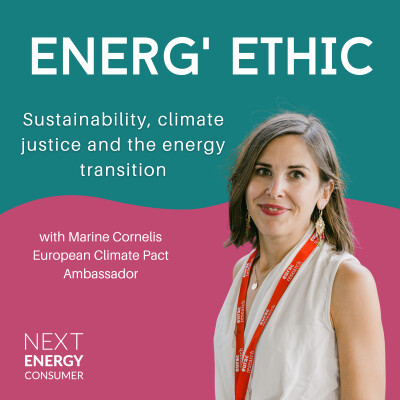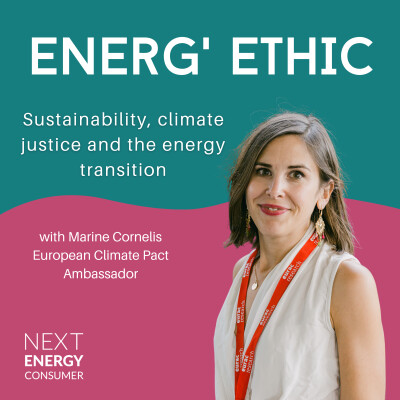Description
At Energ'Ethic, we're not just talking about change: we're driving it.
A first-of-its-kind podcast, our host, Marine Cornelis, invites the heroes and leaders of the sustainability movement. We dive into real stories, from innovative energy solutions to creating smart, inclusive communities and cities - always putting people at the centre.
We need to break boundaries and foster a diversity of viewpoints to build resilient energy and climate transition strategies that serve humanity.
Listen to:
- Hear inspiring personal stories and unique perspectives.
- Discover solutions in energy and climate justice.
- Connect with a passionate community driving sustainable change.
Support Energ'Ethic and amplify your impact. Partner with us to reach an engaged audience committed to a sustainable future.
Ready to Make a Difference?
Listen, subscribe, and join us in turning conversations into actions for a just and sustainable world.
Hosted by Ausha. See ausha.co/privacy-policy for more information.

![[SUMMER REPLAY] Shana Gallagher on ISO Standards: Ensuring Accountability in Corporate Climate Strategies cover](https://image.ausha.co/sJ4DWBlnsDjJvH4Gva6IH2ZKAPa3hEAfefUxQRtX_400x400.jpeg)








